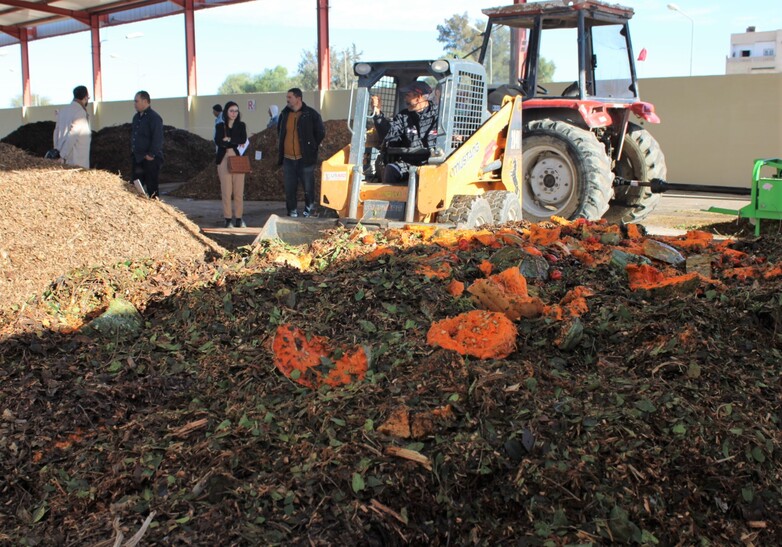Improving climate protection through circular economy in Tunisia
Climate protection through circular economy in Tunisia (ProtecT)
-
Commissioning Party
German Federal Ministry for Economic Cooperation and Development (BMZ)
-
Country
-
Lead executing agency
More
-
Overall term
2020 to 2024
-
Other Stakeholders
National Waste Management Agency (ANGed)
-
Products and expertise
Climate, environment, management of natural resources
Context
Faced with economic, environmental and climate change challenges, Tunisia aims to create a model for sustainable and climate-resilient development. To achieve this, the country must first formulate a national strategy and ensure that it is implemented in a coordinated manner. Most importantly, there needs to be a shift in strategy from waste management to sustainable resource management. The changes this entails must be explained to the target groups.
Objective
The government and the authorities create the framework for a labour-intensive circular economy in Tunisia that protects the environment and conserves resources.

Approach
The project operates in the following areas:
- It integrates aspects of the circular economy into the national legal framework. In the process, the project triggers a national debate on how the strategy can be implemented in the respective fields of activity, for instance in waste management and in local development.
- It develops training programmes for climate protection and the circular economy, which are conducted with the partners (Ministry of Environment, ANGed, national training institutes). As a result, the project creates the job description of the ‘municipal environmental consultant’ who designs projects on environmental protection and the circular economy in the local administration and then implements these projects with local private sector actors and civil society organisations.
- It analyses waste streams and their potential for value creation in the country. Public-private partnerships are supported with the aim of recovering reusable materials from waste streams in the pilot regions of Bizerte, Gafsa and Kairouan.
- It carries out campaigns at national and regional level to raise awareness among decision-makers and young people of the circular economy and climate protection. Study trips contribute to the sharing of experience and expertise.
Last update: June 2023






